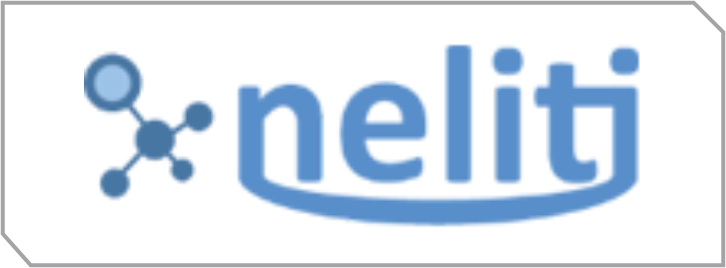How Product Knowledge Shapes the Impact of Artificial Intelligence on Spotify Brand Relationship and Loyalty
DOI:
https://doi.org/10.53748/jbms.v4i4.109Keywords:
artificial intelligence, customer brand relationship, customer loyalty, product knowledgeAbstract
The main focus of this research is to find out whether the use of Artificial Intelligence has an effect on Spotify’s Customer Brand Relationship and Customer Loyalty, on the other hand it is also mediated by Product Knowledge. This research uses quantitative methods which are distributed through questionnaires and processed using SmartPLS. Respondent requirements include (1) Spotify users, (2) aged 12 – 45 years, and (3) domiciled on the island of Java. The data analysis process involves validity testing which is considered relevant if the value is more than 0.5 (> 0.5), reliability testing which is considered relevant if the value is more than 0.7 (> 0.7), and hypothesis testing which is considered significant if it has value more than 1.96 (> 1.96). From a total of 195 respondents, the research results explain that the Artificial Intelligence variable influences Spotify’s Customer Brand Relationship and Customer Loyalty, which shows a positive and significant influence. Similar results were also obtained if mediation from Product Knowledge was added. Examining the impact of Artificial Intelligence specifically within the context of Spotify and its users is a relatively focused area. While AI is increasingly prevalent, research delving into its direct influence on customer brand relationships and loyalty for a specific digital service like Spotify might offer unique insights.
Downloads
References
Al Fajar, K. (2022, March 29). 5 Efek Musik Terhadap Kinerja Otak Manusia. Hellosehat. https://hellosehat.com/saraf/efek-musik-pada-otak/
Broberg, C., Doshoris, I., & van De Haar, I. (2019). How Artificial Intelligence is changing The Relationship between The Consumer and Brand in The Music Industry. In LBMG Strategic Brand Management - Masters Paper Series BUSN21 20192. https://lup.lub.lu.se/student-papers/search/publication/9007033
Caru, A. & Cova, B. (2003). Revisiting Consumption Experience: A More Humble but Complete View of the Concept. Marketing Theory, 3(2), 259-278.
Cowley, E., & Mitchell, A. (2003). The moderating effect of product knowledge on the learning and organization of product information. Journal of Consumer Research, 30(3), 443-454.
Dewi, M. P. (2009). Studi Metaanalisis: Musik Untuk Menurunkan Stres. Jurnal Psikologi, 36(2), 106-115.
Elsya, P., & Indriyani, R. (2020). The impact of product knowledge and product involvement to repurchase intention for Tupperware products among housewives in Surabaya, Indonesia. SHS Web of Conferences 76, 01037. https://doi.org/10.1051/shsconf/20207601037
Fadryona, R. (2020). The Spotify Effect: Peranan Spotify for Artists dalam Industri Musik 4.0. Jurnal InterAct, 9(2), 96-109.
Ghozali, I. (2016) Aplikasi Analisis Multivariete Dengan Program IBM SPSS 23. Edisi 8. Semarang: Badan Penerbit Universitas Diponegoro.
Hasmini, N., Ghani, B. A., Kashedul, M., & Tuhin, W. (2016). International Review of Management and Marketing Consumer Brand Relationships. International Review of Management and Marketing, 6(4), 950–957.
Hohenstein, J., & Jung, M. (2020). AI as a moral crumple zone: the effects of AI-mediated communication on attribution and trust. Computers in Human Behavior, 106:106190. doi: 10.1016/j.chb.2019.106190
McAlexander, J. H., Schouten, J. W., & Koenig, H. F. (2018). Building brand community. Journal of Marketing, 66(1), 38–54.
Naurah, N. (2023, June 15). Bukan Spotify, Youtube Music Juarai Platform Musik yang Paling Sering Digunakan Masyarakat 2023. GoodStats. https://goodstats.id/article/bukan-spotify-youtube-music-juarai-platform-musik-yang-paling-sering-digunakan-masyarakat-2023-o2Uyq
Rasyid, N. A. (2024, February 22). 10 Negara Pengguna AI Terbanyak, Indonesia Salah Satunya. Goodstats. https://data.goodstats.id/statistic/10-negara-pengguna-ai-terbanyak-indonesia-salah-satunya-RLlmC
Ridwan, L. M., Solihat, A., & Trijumansyah, A. (2018). Pengaruh Product Knowledge dan Brand Association Terhadap Purchase Intention Kawasan Kampung Kreatif Dago Pojok. Jurnal Pariwisata, 5(1), 68-82.
Risnaldi, P., Hartoyo, H., & Prasetya, P. (2023). Erigo Customer Loyalty at Shopee E-Commerce. Indonesian Journal of Business and Entrepreneurship, 9(1), 141-151.
Sahnir, N., & Yatim, H. (2023). Pengenalan teknologi Artificial Intelligence (AI) dalam meningkatkan pengalaman belajar seni di era digitalisasi pendidikan. Prosiding Seminar Nasional UNM ke-62 2023, 1, 245-256.
Sari, N. A., Azizah, A.N., Salima, A., & Sasmita, N. J. (2019). Mendengarkan musik & stress dalam kehidupan sehari-hari – Replikasi Penelitian “Music Listening and Stress in Daily Life─a Matter of Timing” Oleh Alexandra Linneman, MarioWenzel, Jennifer Grammers, Thomas Kubiak, Urs M. Nater. Proceeding Seminar Hasil Penelitian Eksperimen 2019 “Cluster Tema : Emotion, Perception, Attention and Mood. Prosiding, - (-). Laboratorium Psikologi Program Studi Psikologi Fakultas Ilmu Sosial dan Humaniora UIN Sunan Kalijaga Yogyakarta, Yogyakarta, pp. 1-6. ISBN 978-602-60774-5-5
Setyadi, B., Helmi, S., & Santoso, A. (2024). Unraveling the influence of product advertising on consumer buying interest: Exploring product knowledge, product quality, and mediation effects. Cogent Business & Management, 11(1). https://doi.org/10.1080/23311975.2024.2349253
Shimp, T. A., & Madden, T. J. (1988), Consumer-object relations: A conceptual framework based analogously on Sternberg’striangular theory of love. Advances in Consumer Research, 15(1), 163-168.
Siagian, H., Putera, G., & Burlakovs, J. (2020). The Effect of Product Knowledge on Salesperson Performance with the moderating role of Attitude. SHS Web of Conferences, 76, 01011. https://doi.org/10.1051/shsconf/20207601011
Downloads
Published
How to Cite
Issue
Section
License
Copyright (c) 2025 Journal of Business, Management, and Social Studies

This work is licensed under a Creative Commons Attribution 4.0 International License.
Authors retain copyright and grant the journal right of first publication with the work simultaneously licensed under a Creative Commons Attribution 4.0 (CC 4.0) that allows others to share the work with an acknowledgment of the work's authorship and initial publication in this journal.


















